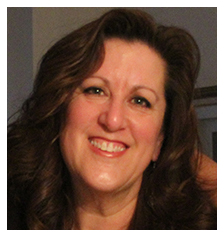Debi Swedelson Mishael
 I’ve been hearing it for decades, out of my father-in-law’s mouth, “Only in Ahmehrika!” he says with his still thick Israeli accent.
I’ve been hearing it for decades, out of my father-in-law’s mouth, “Only in Ahmehrika!” he says with his still thick Israeli accent.
He was born in Jerusalem over 90 years ago and came to settle in the states in the mid-50’s. Over the years he has seen many wonderful sights but, still, to this day, whenever he sees any modern convenience he remarks, “Only in Ahmehrika!”
He lived through a time when the ‘halutzim’ cleared the swamps to plant agriculture and build a home. His milkman was the goat herder that came down his street and delivered it “fresh squeezed” into the family pitcher. His mother used a washboard in the bathtub to scrub the household laundry. Though distant images, these are still fresh memories of his life in Israel. Like many of our student, his Israel is ancient and soulful. It is memories of his days in the army coordinating transport for Shimon Perez. It’s connected to history and heritage, to Abraham, to Isaac and to Jacob.
 As I sit at the foot of Dad’s hospital bed, passing the time checking my various email accounts, Dad looked down and asked, “Is that your phone?” “Actually Dad, it’s my phone and my calculator. It’s my weather station and my navigation system. It’s my address book and my day planner. It’s my encyclopedia, my stock market watch, my newspaper and so much more.” To which he replied…say it with me folks…”Only in Ahmehrika!”
As I sit at the foot of Dad’s hospital bed, passing the time checking my various email accounts, Dad looked down and asked, “Is that your phone?” “Actually Dad, it’s my phone and my calculator. It’s my weather station and my navigation system. It’s my address book and my day planner. It’s my encyclopedia, my stock market watch, my newspaper and so much more.” To which he replied…say it with me folks…”Only in Ahmehrika!”
I thought for a quick second and had to contradict him this time. “No Dad. Actually, much of this technology was developed in Israel!” Israel has more scientists and engineers per capita than any country in the world except one. Israel is a hub of modern technology and innovation. It’s been called an “Upstart Nation” because of the number of start up companies. Tel Aviv is a thriving Silicon Valley. I remembered that just the week prior, I had shown my 8th grade students a YouTube clip on this very subject. I pulled up the video on my iPhone 6+ and gave it to him. He beamed with pride every time another mention of Israeli innovation was mentioned. He smiled at his bride of over 60 years and said, “Did you hear that Barbara!”
At the start of the school year, my students took a pre-test to assess their general knowledge of Israel. One question asked them to give 10 words that come to mind when they think of Israel. The predominant themes were: desert, conflict, sand, Moses, camels, hot. Next week I will administer a post-test asking the same question. I sincerely hope I will see responses that reflect the new direction our study of Israel has taken.
Last summer, a group of 21 Houston educators went to Israel with the Shirley Barishז”ל Israel
Educators’ program. We continue to work together throughout the year to bring Israel education to High School students. Using technology in the classroom as tools to access information has gone hand in hand with learning about Israel. We encourage our students to “google” and answer or research on-line. Recently out students were asked to create a list of items one would not be able to use if they wanted to “divest” in Israel. It was eye-opening. From computers to phones, voice mail to On Demand TV, from generic drugs to bank fraud protection, Israeli ingenuity is everywhere.
Our students should be taught about the Israel of the past but also, about Israel of today where nothing is impossible. Theodor Herzl was never more correct. “If you will it, it is no dream.” Where else can you find a modern metro rail built adjacent and through a 2,000 year old infrastructure? Where else can you find an arid dessert in full bloom with the use of drip irrigation? (Actually, there are over 100 other countries to which Israel has brought this technology.) Where else will you see desalinization plants that are taking Israel from a country with a drastic shortage of water to a surplus? Where else is 80% of waste water recycled? “Only in Israel!”
I highly doubt the Dad will ever change his catch phrase to “Only in Israel” but I think it is important that we, as Jewish educators help our students to see innovations and technology when they look at Israel and not just dessert and camels. “Only in Israel” should be the phase on our students’ lips.
Educators struggle to make Israel relevant to their students. We simulate mock classroom “trips to Israel” that will never build the connection to our land that an actual trip to Israel will forge. We want our students to link themselves to our biblical ancestors but perhaps we can find a relevant link for them in the technology that they already use on a daily basis. Perhaps we can open the door to them thinking about a future for themselves as an engineer or scientist in this innovative country of their heritage.

